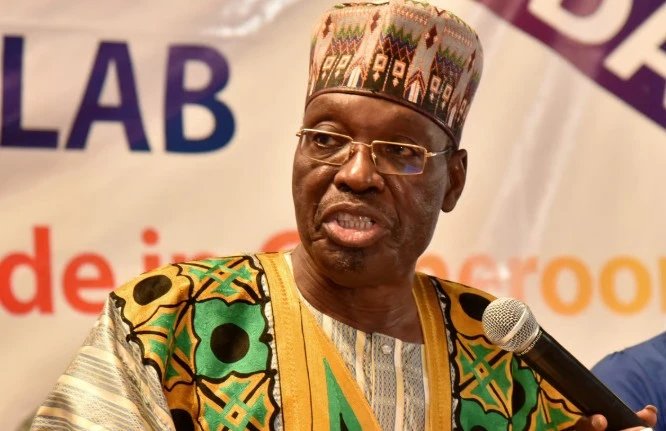
Veteran Cameroonian politician Issa Tchiroma Bakary has issued a bold statement denouncing the exclusion of opposition leader Maurice Kamto from the upcoming presidential election.
In a press release dated July 27, Tchiroma expressed his “indignation” over the decision by the national electoral body, ELECAM, to disqualify Kamto—an action that has already sent shockwaves through the country’s political establishment.
Tchiroma, who is running under the FSNC banner, voiced his displeasure less than 24 hours after ELECAM published a final list of 13 approved candidates from a pool of 83 applicants. Kamto, a former justice minister and internationally recognized legal scholar, was notably absent.
“My intention is not to question the arbitration conducted by ELECAM,” Tchiroma said in his carefully worded statement.
However, he added pointedly, “Given Professor Kamto’s internationally recognized legal expertise, I am convinced that he had taken all the necessary legal measures beforehand.”
The implications were clear: Kamto’s disqualification, in Tchiroma’s view, raises serious questions about the transparency and fairness of the electoral process.
The former employment minister referred to the “multifaceted challenges of the presidential election,” suggesting a veiled warning about potential political manipulation behind the scenes.
Tchiroma went further, urging ELECAM to “demonstrate impartiality and integrity by fully assuming its responsibilities.” His call comes at a time when confidence in Cameroon’s electoral institutions is already strained.
But the FSNC leader’s message was not solely critical. In an act of rare political solidarity, Tchiroma extended what he called a “fraternal hand” to the excluded Kamto.
“Our political paths may diverge, but our common aspiration for fair justice unites us,” he declared—a statement that many observers have described as historic in tone and significance.
This marked shift from Tchiroma—once a loyalist of President Paul Biya’s regime—underscores his political realignment following his resignation from government in June. His latest remarks reinforce his transformation into a candidate promoting reform, inclusion, and democratic integrity.
“As patriots, we must together defend the rights and freedoms of all Cameroonians so that no one is excluded from democratic competition,” he concluded.
Reactions on the ground have been mixed. In the Yaoundé suburb of Mendong, one voter commented anonymously, “Tchiroma is playing his cards right, but we’ll see if he follows through.”
As the nation heads toward the October presidential contest, Tchiroma’s powerful critique—and his unexpected gesture of unity—could reshape opposition alliances and redefine the battle for Etoudi.



